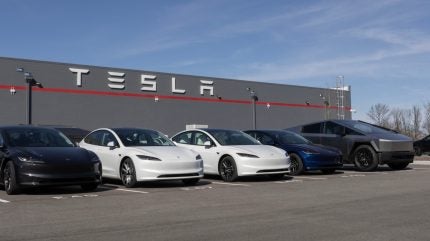
South Korea-based Samsung SDI is in talks to provide energy storage system (ESS) batteries to Tesla.
The Korea Economic Daily reported that contract could be valued at around Won3tn ($2.11bn) or more.

Discover B2B Marketing That Performs
Combine business intelligence and editorial excellence to reach engaged professionals across 36 leading media platforms.
If concluded, the agreement would represent another step by Tesla to curb dependence on Chinese components, according to Reuters.
The US battery electric vehicle (BEV) manufacturer has increasingly looked to South Korean suppliers for key inputs, including chips and batteries, in recent months.
In July, Samsung Electronics signed a long-term contract to deliver next‑generation AutoPilot “AI6” chipsets to Tesla.
The eight‑year deal, worth $16.5bn, covers supply of Samsung’s 2nm chips.
Tesla has also reached a separate arrangement with LG Energy Solution earlier.
South Korean battery producers have been shifting capacity from electric vehicle (EV) cells to ESS units after the removal of certain US subsidies.
Earlier this month, Samsung SDI said on an earnings call that demand from its joint venture (JV) partner Stellantis had fallen sharply and that it would repurpose parts of its EV battery lines in Indiana to manufacture ESS products.
Samsung SDI has agreed to supply Tesla with ESS batteries over a three year period.
Tesla did not immediately respond to Reuters’ request for comment.
Last month, Tesla reported a decline in third‑quarter (Q3) profit despite record revenue for the period, supported partly by higher US sales ahead of the expiry of a federal EV tax credit.
Attributable net income fell 37% year on year to $1.37bn. The automaker reported quarterly revenue of $28.09bn, up 12% year‑on‑year.
The group said profitability was impacted by increased R&D expenses and the tariffs.
The R&D expense, including artificial intelligence, rose 56.9% from $1.03bn in Q3 2024 to $1.63bn in Q3 2025.
Vehicle production totalled 447,450 units, down 5% from a year ago, while deliveries reached a record 497,099, up 7% year-on-year.






